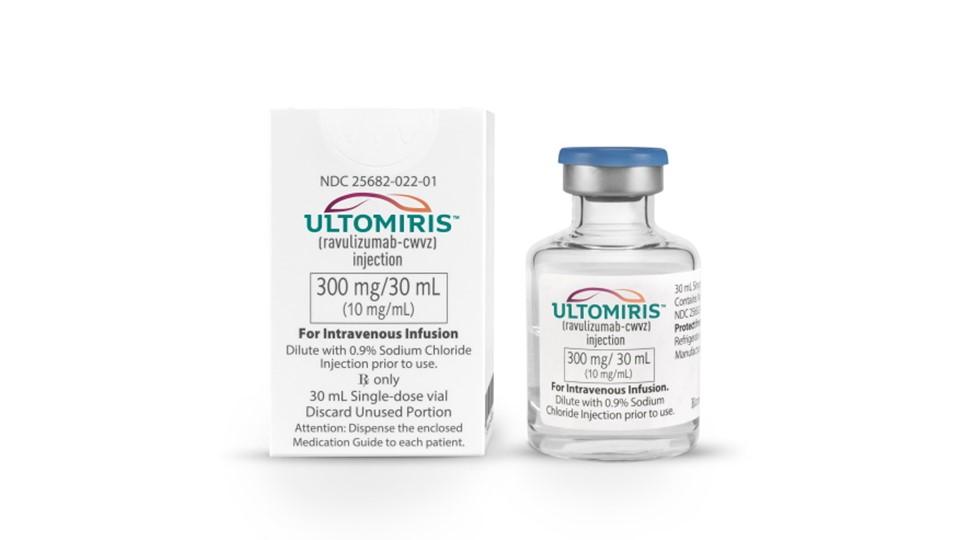FDA blocks new use for AstraZeneca's Ultomiris

AstraZeneca has been successful at rolling out its long-acting complement C5 inhibitor Ultomiris in the uses approved for its predecessor Soliris – until now, that is.
The drugmaker confirmed this morning that the FDA had baulked at extending the label for Ultomiris (ravulizumab) to include neuromyelitis optica spectrum disorder (NMOSD), a rare autoimmune disorder for which Soliris was approved in 2019.
In a complete response letter (CRL), the FDA said it was not asking for any additional clinical data for Ultomiris as a treatment for NMOSD, but is looking for modifications to the risk evaluation and mitigation strategy (REMS) for the drug, according to AZ.
Specifically, the regulator wants the REMS to check patients' meningococcal vaccination status or prophylactic administration of antibiotics prior to treatment with Ultomiris.
Data have suggested that meningococcal vaccines may provide incomplete protection against invasive meningococcal disease in people receiving Soliris and Ultomiris, according to the Centers for Disease Control and Prevention, and the current recommendation is that clinicians should consider antimicrobial prophylaxis for patients taking the drugs to reduce the risk of meningococcal disease.
An amendment to the REMS for Ultomiris should not be too difficult to drive through, suggesting the delay may not be too long. Ultomiris has already been approved for NMOSD in the EU, Japan, and other countries.
AZ said it is working with the FDA closely on the issue and "remains committed to bringing Ultomiris to people living with NMOSD in the US as quickly as possible." The drug is already FDA-approved for other Soliris indications, including paroxysmal nocturnal haemoglobinuria (PNH), haemolytic uraemic syndrome (HUS), and generalised myasthenia gravis (gMG).
Building up Ultomiris as a replacement for Soliris is critical for the drugmaker, as the latter is due to lose patent protection and face biosimilar competition in the US in 2025. Amgen is among the companies developing biosimilars of the brand, and a year ago reported phase 3 data that showed its candidate matched Soliris as a PNH therapy.
AZ has been working hard to switch patients over to Ultomiris, which has the advantage of needing an infusion every eight weeks, versus two weeks for Soliris, although other competitors in key indications like PNH have started to emerge, such as Roche's crovalimab and Novartis' iptacopan.
In NMOSD, Soliris is also facing competition from Horizon Therapeutics' CD19-directed cytolytic antibody Uplizna (inebilizumab) and Roche's IL-6 inhibitor Enspryng (satralizumab).
In the first half of this year, AZ reported sales of Soliris were down 16% at constant exchange rates to $1.65 billion, with Ultomiris growing 64% to $1.4 billion.












